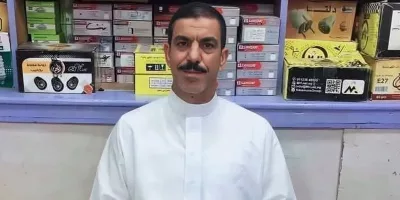‘We decided to close the investigation’: Mechanisms of complaint and reporting of human rights violations in Egypt in the first half of 2021
In Egypt, one of the major problems facing the victims of human rights violations and their families in making their voices heard to the authorities is the closed communication link between official bodies and local complaints mechanisms, the Committee for Justice (CFJ) said in its latest analytical report. The report referred to the alliance of official bodies and their complicity in approving and ensuring the continuation of crimes and violations against victims without independent external oversight.
The semi-annual report has been issued by CFJ as part of its Detention Watch project, and is entitled “We decided to close the investigation: Mechanisms of complaint and reporting of human rights violations in Egypt in the first half of 2021.” The report outlines some of the most prominent cases of complaints and communications documented by CFJ or carried out by its field teams during the first half of 2021, on behalf of victims in Egyptian prisons.
The aim of the report is to discuss the shortcomings and ineffectiveness of the local official mechanisms for complaints and communications in Egypt, by reviewing the existing mechanisms and their compatibility with Egypt’s international obligations, as well as reviewing samples of the victims’ experiences that have been documented, in addition to presenting examples of some local mechanisms applied in other countries, which may be useful in achieving justice, representing victims and mediating between them and the Egyptian authorities.
The report touched on the official mechanisms currently available to submit complaints and reports in Egypt, whether inside detention facilities or through the National Council for Human Rights, which, despite complaining about the interference of the executive authority in its work through the state security apparatus during the short tenure of the elected president Mohamed Morsi, its relationship with the current regime has been characterized by complicity rather than participation in the advancement of human rights conditions in Egypt. Another complaints mechanism discussed in the report is resorting to the Egyptian judiciary through the Administrative Court or the Supreme Administrative Court.
The report also referred to the legal role of the Egyptian Public Prosecution, the extent to which it ignored this role, and the lack of transparency in the reports it provides on places of detention, both in terms of the quality of complaints submitted to it and the ways in which it responds and investigates them. CFJ has succeeded in accessing the data of at least 14 petitions among the hundreds that were submitted to the Prosecutor General’s Office, but none of them have yet received an answer, despite the fact that they continued to be examined for months at the Technical Office and the Supreme State Security Prosecution.
The report presented the experiences of victims and their families in submitting complaints and reports, and the most prominent patterns of dealing with them, which were documented by CFJ during the first half of this year, including: the prolonged neglect of complaints, which may extend the life of the complaint for years, as well as the abuse of victims or their families after submitting reports and complaints to the official authorities. An example of this is the case of Sana Seif, the sister of the arbitrarily detained human rights defender Alaa Abdel-Fattah, after her sister, Mona, and her mother, Dr. Ahdaf Soueif, were attacked in June 2020 by “thugs” who were instigated by the administration of the Tora Prisons Complex after they demanded the right to communicate and check on Alaa during the peak of the Covid-19 pandemic.
CFJ also documented the authorities’ denial of carrying out violations against detainees. The various bodies investigating complaints submitted reports that the allegations were inaccurate. An example of this is the case of the detainees Ziad el-Elaimi and Ahmed Samir complaining that they were beaten inside their jail in Tora Liman Prison by prison officers, after they were prevented from going to console another prisoner following the death of his father on the pretext of prison laws. And after Ziad protested against depriving them of exercise – a right established in accordance with the same regulation – lawyer Khaled Ali submitted a report to the Supreme State Security Prosecution regarding the incident, but the Ministry of Interior quickly issued a statement on its official Facebook page denying the incident and claiming that it was “totally untrue.”
The report also reviewed the most important local alternatives to activate complaints mechanisms, including the “Visitors/Supervisors Authority”: this is a system implemented in Germany and allows independent counselors to visit places of detention and receive complaints and send them to the prison administration to mediate between the complainant and the administration. Also, the “family committees” and associations of detainees’ families, which the report saw the need to support in light of the spread of cyberspace, with a higher capacity for fair and objective representation of victims, and easy access and communication between victims and the authorities without bureaucratic obstacles.
At the conclusion of its report, CFJ recommended holding the detention authorities accountable for crimes and violations of ignoring the complaints of victims and their families, and reprisals and retaliation against them. The Egyptian Public Prosecutor is also obligated to respond to complaints and requests submitted to him regarding the cases dealt with in the report, and to promptly seek redress for the victims and their families from the detention authorities.
CFJ also called for activating the role of the Egyptian Public Prosecution in supervising prisons and places of detention, and expediting the resolution of cases brought before the administrative judiciary and the Supreme Administrative Court of the State Council to provide justice to the victims, stop crimes and violations against them, and oblige the concerned authorities to compensate them financially and morally.
CFJ called for replacing the flawed role played by the Egyptian National Council for Human Rights with effective and independent mechanisms, such as the Parents’ Committees and the Visitors and Supervisors Authority, and striving to represent prisoners and include them in the mechanisms of investigation and complaints to ensure real oversight of places of detention, to achieve the credibility of complaint and redress mechanisms, and to ensure victims’ confidence in the justice system and the rights established by the constitution and Egyptian law.






